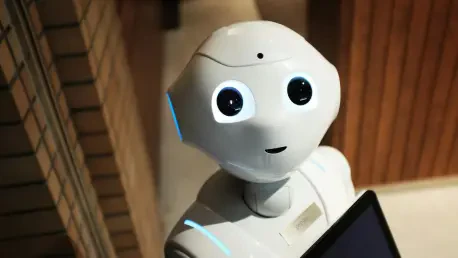Imagine a world where artificial intelligence (AI) boldly ventures into the recesses of copyrighted material, sparking a legal showdown of unprecedented scale. Major tech companies like Meta and OpenAI are at the forefront of this contentious issue, leveraging vast arrays of creative content without explicit permission. The outcome of this battleground will shape the future of creativity in an AI-driven world.
The High-Stakes Dilemma
A growing conflict between tech giants and content creators has emerged, raising a critical question: Who truly owns creative content in the AI era? With AI companies harvesting massive troves of copyrighted material to train their models, content creators feel their rights are under siege. The magnitude of this legal controversy has captured the attention of lawmakers and the creative industry worldwide, prompting urgent discussions on the stakes involved.
Why It Matters
The intersection of AI technology and intellectual property rights underscores the need for a delicate balance. On one hand, AI innovation promises groundbreaking advancements; on the other, it threatens to undermine the rights and livelihoods of authors, artists, and media institutions. Unregulated AI practices could destabilize both the creative sector and existing legal frameworks, necessitating a thoughtful approach to innovation and protection.
Unpacking the Legal Battle
Prominent legal actions have been taken against tech companies accused of unauthorized usage of copyrighted content. Meta, for instance, has faced lawsuits from notable authors and media entities like The New York Times. These lawsuits claim infringements upon creators’ rights, challenging AI companies that defend their actions as ‘fair use.’ The legal landscape is fraught with industry reactions and defenses, posing a critical test for intellectual property law.
Voices from the Frontlines
Sen. Josh Hawley has termed the AI industry’s unlicensed use of creative content as potentially “the largest intellectual property theft in American history.” Distinguished author David Baldacci has publicly shared his unsettling experience with AI-generated plagiarism, conveying the personal impact on his professional life. Michael Smith, an expert from Carnegie Mellon University, likened this issue to the music licensing challenges faced when the internet first emerged, emphasizing the importance of safeguarding the creative economy.
Seeking Solutions
Efforts are underway to reconcile innovation with legal compliance. Proposals such as a formal licensing system, endorsed by policymakers like Bhamati Viswanathan, offer a path toward fair compensation for creators while enabling technological advancements. Building structured legal frameworks is vital for an environment that supports both progress and creator rights, addressing a need for adaptation amidst AI’s evolution.
As AI continues to redefine creative landscapes, stakeholders seek to develop systems that enable coexistence between technological innovation and intellectual property protection. The path forward involves crafting legal frameworks that can foster a mutually beneficial relationship, ensuring AI technologies evolve responsibly while respecting the rights of content creators. Such endeavors are expected to safeguard the interests of all parties involved, paving the way for a harmonious future where creativity and technology thrive together.









